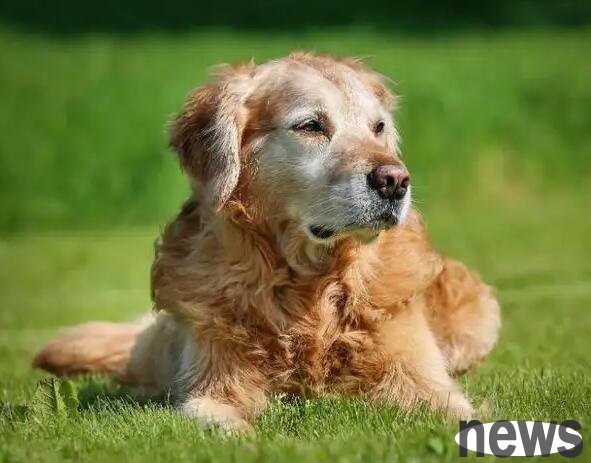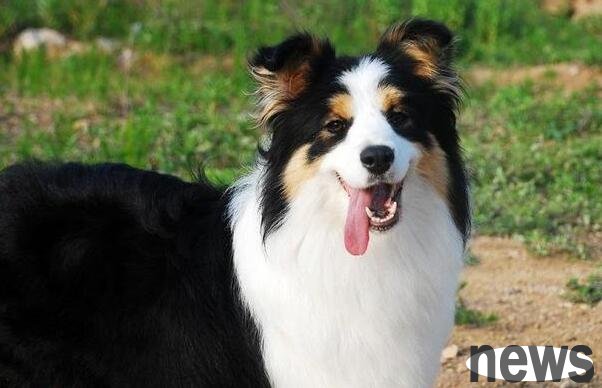Factors influencing dog lifespan: The lifespan of a dog is related to breed, gender, body shape, breeding conditions, exercise, disease, etc. Generally speaking, bull dogs live longer than purebred dogs, male dogs live longer than female dogs, and small dogs live longer than large dogs. Large dogs have a short lifespan, with an average of 9 to 12 years old; small dogs have a long lifespan, with an average of 12 to 15 years old. Some dogs have a lifespan of 20 years old, and the longest lifespan is 34 years old. The age of 2 to 5 is the middle age of dogs. They begin to age after the age of 7 and lose their reproductive ability at around 10 years old.
General life expectancy rankings
Dogs have a life expectancy of about 13-18 years, and the longest is more than 20 years, but it is rare.
Like humans, dogs will be afraid of loneliness when they are old and will rely more on their owners. So try to comfort them as much as possible when they are at home. A life needs to be tolerant and care for you in your later years. Don’t dislike them because they are old. After all, it gives you the best time. We should take good care of it in the following aspects:

Emotional aspects:
Care for elderly dogs, and most importantly, emotions. It has been with you for the rest of your life and has a deep affection and attachment to you and your common home. The owner should spend more time with your old friends and carefully observe every change in it.
Function and rest: The physical functions of an elderly dog begin to decline and need a stable, regular and slow-paced life. Unless the original living habits are extremely unscientific, don’t change its schedule easily. When an elderly dog sleeps, do not disturb or scare it, and let it rest fully.
Sports:
Older dogs should no longer do strenuous exercise like middle-aged dogs, such as mountaineering, running, swimming, etc., and daily walks can meet their exercise needs. Don't force it to exercise continuously. Give it a chance to decide whether to continue to move or stop and rest.
Dental care:
Dogs should insist on brushing their teeth with special teeth 1 to 2 times a week, feeding high-quality dog food, grinding their special toys and cleaning tartar.
Bones and joints: After the dog enters the elderly, it should use calcium supplement drugs specifically for pets to supplement calcium in an appropriate and continuous manner. The joints of an elderly dog are stiff and aging. If you find that it is limping, you should go to the hospital for examination. Excessive obesity will cause excessive burden on the dog's bones and you must lose weight. You can choose foods for weight loss dogs and increase your exercise appropriately.
Dietary:
The food for elderly dogs should be soft, easy to digest, high in calcium, low in phosphorus, high in quality protein and appropriate amount of cellulose. It is recommended to choose dog food for elderly dogs with reliable quality.

Combing:
Whether long-haired dogs or short-haired dogs, they should be groomed frequently. During the combing process, they can check whether their body has mass and whether their lymph is swollen, especially in areas with frequent diseases such as armpits and thigh roots. Combing can promote blood circulation and fur health, and it is also a good opportunity to enhance feelings.
Visibility:
According to statistics, more than 40 dog breeds are prone to eye diseases such as cataracts and glaucoma. In the late stage of cataract, white membranes will be covered on the eyeballs, while in the late stage of glaucoma, the pupils cannot shrink under strong light, which is very painful. Eye disease brings inconvenience and even danger to its life, so attention should be paid to preventing and avoiding it.
Weigh weight regularly:
Beware of the continuous weight loss and go to the animal hospital to find out the cause.
Tip
Pay attention to combing the coat to promote the growth of winter hair. In autumn, dogs' feeding intake will increase, store fat, and prepare for their physical fitness for winter. At this time, feeding intake should be appropriately increased and quality should be improved. Autumn is also the second breeding season for dogs, so pay attention to managing breeding dogs. Conduct regular comprehensive physical examinations and pay close attention to various indicators such as liver and kidney function. Get vaccinated on time, about half a month earlier than the previous year every year. The old dog's resistance is reduced, and once it is infected, the consequences will be unimaginable.
When you go out, you will be able to hold a good dog, but you will encounter car accidents, stolen, or lost because you don’t go out. In order to ensure the safety of the dog itself, you should also avoid scaring your neighbors who are afraid of dogs. The dog should be held when going out for the rest of your life. Elderly dogs have slow senses and reactions, so it is very dangerous to let them move around at will. Long-term urine retention can cause diseases such as stones. For dogs who insist on not urinating and defecating in the house, they should go out three times a day. If you find it difficult or painful to urinate, you should seek medical attention immediately. Old dogs have reduced their physical adjustment ability. They must wear clothes when going out in winter. They should not stay outdoors between 10 and 16 o'clock in summer.